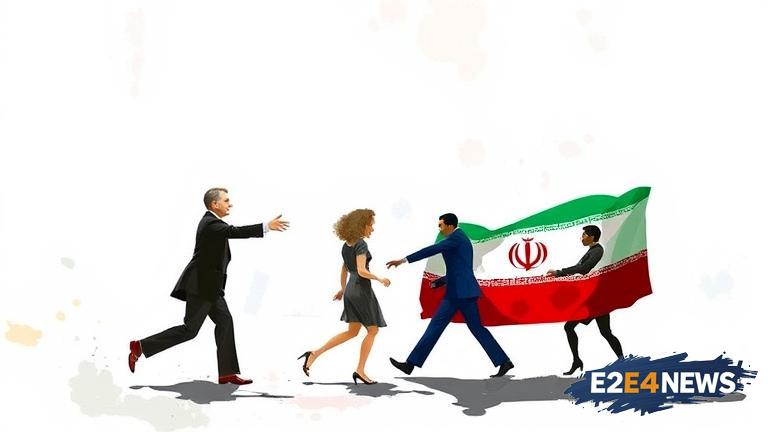The ongoing nuclear talks between Iran and European countries have been making headlines in recent days, with the international community watching closely as the negotiations unfold. The talks, which aim to revive the 2015 Joint Comprehensive Plan of Action (JCPOA), also known as the Iran nuclear deal, have been marked by periods of progress and setbacks. The European Union has been playing a key role in facilitating the negotiations, with EU officials working tirelessly to bridge the gap between Iran and the United States. The US withdrew from the JCPOA in 2018, citing concerns over Iran’s ballistic missile program and regional activities. Since then, Iran has been gradually scaling back its commitments under the deal, leading to a significant increase in tensions with the West. The current talks are seen as a last-ditch effort to salvage the agreement and prevent a nuclear arms race in the Middle East. Iran’s nuclear program has been a source of concern for the international community for decades, with many fearing that the country’s nuclear ambitions could have catastrophic consequences. The JCPOA, which was negotiated during the Obama administration, imposed strict limits on Iran’s nuclear activities in exchange for relief from economic sanctions. However, the deal has been on life support since the US withdrawal, with Iran’s economy suffering greatly under the weight of renewed sanctions. The European Union has been working to preserve the deal, with EU officials arguing that it remains the best way to prevent Iran from developing a nuclear bomb. The talks have been complicated by a range of factors, including Iran’s demand for the US to lift all sanctions before it returns to compliance with the deal. The US, on the other hand, has been insisting that Iran must first demonstrate its commitment to the agreement before any sanctions relief is granted. Despite the challenges, the negotiations have shown signs of progress in recent weeks, with Iran agreeing to extend a deadline for the talks and allow international inspectors to continue monitoring its nuclear activities. The extension of the deadline has been seen as a positive development, giving the parties more time to work out their differences and reach a mutually acceptable agreement. The international community has been urging all parties to remain committed to the talks, with many warning that a failure to reach an agreement could have disastrous consequences for regional and global security. The Middle East is already a volatile region, with a range of conflicts and tensions simmering just below the surface. A nuclear-armed Iran would only add to the instability, potentially sparking a devastating arms race and increasing the risk of conflict. The US, Europe, and other global powers have a critical role to play in supporting the negotiations and encouraging all parties to remain at the table. The talks are not just about Iran’s nuclear program, but also about the broader implications for regional security and the global non-proliferation regime. The international community must remain vigilant and committed to finding a peaceful resolution to the crisis, one that addresses the concerns of all parties and prevents a catastrophic conflict. The negotiations are a complex and delicate dance, requiring careful diplomacy and a deep understanding of the underlying issues. The stakes are high, but the potential rewards are great, with a successful agreement offering a chance to reduce tensions, promote regional stability, and prevent a nuclear arms race. As the talks continue, the world will be watching closely, hoping that the parties can find a way to overcome their differences and reach a mutually beneficial agreement. The European Union’s role in facilitating the negotiations has been crucial, with EU officials providing a neutral and trusted platform for the talks. The EU’s commitment to the JCPOA has been unwavering, with the bloc arguing that the agreement remains the best way to prevent Iran from developing a nuclear bomb. The US, on the other hand, has been more skeptical, with the Trump administration withdrawing from the deal in 2018. However, the Biden administration has signaled its willingness to rejoin the agreement, provided that Iran returns to compliance with its terms. The talks are a critical test of the international community’s ability to work together to address common security challenges. The outcome will have far-reaching implications for the Middle East and beyond, with the potential to either reduce tensions or spark a devastating conflict. The world is holding its breath as the negotiations unfold, hoping that the parties can find a way to overcome their differences and reach a peaceful resolution to the crisis.
